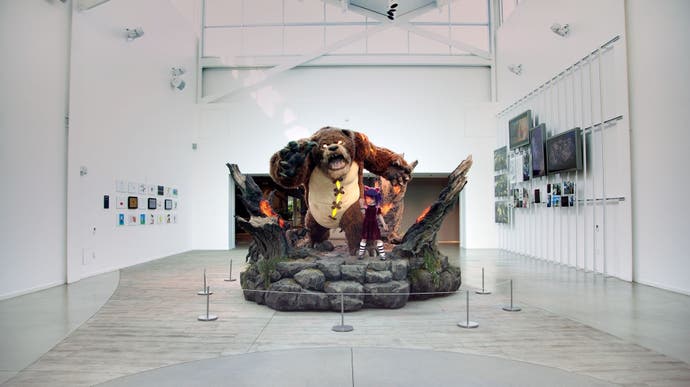As Riot bids to take on Blizzard and Valve, the studio faces challenges of its own making
"There are no limits" co-founder Marc Merrill tells us, as a new world order emerges.
For a good decade, Blizzard Entertainment has been the undisputed champion of developing and publishing prestige PC games. Warcraft, World of Warcraft, StarCraft, Overwatch, Diablo, and Hearthstone (we can maybe skip Heroes of the Storm, sorry) have sat at more or less the top of their respective genres for years. In some cases, decades. Blizzard was way ahead of the curve in setting up, in Battle.net, a kind of storefront-launcher across its multiple games. It has an annual convention, in BlizzCon, where thousands gather to cosplay as their favourite Blizzard characters and cheer the most minuscule of announcements. Most of all, it's one of the only developer-publishers whose name carries the same kind of "seal of quality" weight that you could apply to the likes of Nintendo. But things change, and a new challenger approaches. A plucky, independent little studio called Riot Games fancies a pop at the title.
The background here is really quite delicious, too. For the unfamiliar, back in 2002 Blizzard released the popular, influential real-time strategy game Warcraft 3, and then in 2003 some modders came along and made a new mode of their own for it called Defence of the Ancients, a kind of weird tower defense evolution of the RTS (and they actually made it with the official world editor which is why, you'd imagine, Blizzard was so aggressive with its terms and conditions in the recent Warcraft 3: Reforged). After the Defence of the Ancients mod gained huge popularity, rival company Valve bought the rights to it - much to Blizzard's chagrin - and hired one of the mod's major developers, the pseudonymous "IceFrog", to make Dota 2 for them in 2009. Another designer of the mod, Steve "Guinsoo" Feak, who worked on it even before IceFrog, went on to join Riot's co-founders - a couple of ambitious, business school dorm-buddies called Marc Merrill and Brandon Beck - and made League of Legends.

Now, Dota 2 is handing out prizes in the tens of millions to its tournament winners and Valve of course has a near total monopoly on the PC gaming storefront. Riot's League of Legends is frequently the most-watched game on Twitch, is probably the biggest esport in the world, and probably the biggest game in the world too. As of August 2019, League is averaging peaks of eight million concurrent players worldwide. Meanwhile, at Blizzard, the remaster of Warcraft 3 launched to criticism and controversy, the RTS as a genre is in the worst shape it's ever been, and the company is still getting over the huge protests from both fans and its own staff for the handling of Ng Wai Chung, or "Blitzchung" - one of its own professional players.
That's just the background. Riot has since unveiled Legends of Runeterra, a collectable card game that will surely go head-to-head for a share of the audience with Hearthstone. And even more recently it's shown off Valorant, a highly accomplished - if slightly charmless - tactical, character-and-abilities-based team shooter that forms a delicious triangle with Valve's Counter-Strike: Global Offensive and Blizzard's Overwatch. All of a sudden, Blizzard, Riot, and Valve have formed a triad of companies vying for each other's lunch, each enormously wealthy - Blizzard is now Activision Blizzard, remember - and each with their own subtly different vision. The three are so cross-pollinated Valve can't resist the urge to reboot its own card game, Artifact, and "Project F", Riot's least-detailed tease from their wave of anniversary announcements, is an action RPG that looks an awful lot like a League of Legends universe spin on Diablo. Riot's untitled fighting game is the only one not already covered by one or both of its main rivals.
Perhaps unsurprisingly, though, Marc Merrill, now co-chairman at Riot Games, refuses to be drawn into talk of direct competition - or any kind of rivalry - with the other two PC gaming giants. In fact he argues the opposite. "This may sound strange, but we literally don't think about the world from a business or industry perspective, especially relative to other developers or other titles," he said, when I put all that lengthy history to him. Instead, Riot's ambition is simply to "make it better to be a player".
"It's not about 'beating Magic [the Gathering]' or 'beating Hearthstone', or anything like that," he added, using Riot's card battler Legends of Runeterra as an example. "Those are incredible games that we've all played - I've literally played probably close to 6000 games of Hearthstone. But for a certain type of player, we believed - and the team really believed - that there was an opportunity to do things in a way that would carve out its own niche.
"That being said, when we do look at various genres - I'll just give an example, we'll say an MMO - the analysis very quickly goes: where are our player expectations? What are they set by? And where would opportunity be? You look at the MMO, you're like: WoW. They're 20 years in or 15 years in, right? WoW is still the genre-defining game, the king of the genre, absolutely incredible, such a compelling game across every dimension. So if the team or anybody was going, hey, we want to go build an MMO that was in the same vein as something like WoW, it would have to acknowledge and understand how it would differentiate in a way that would actually be significant and meaningful... but any of the analysis or perspective that's oriented from that standpoint has nothing to do with the companies."
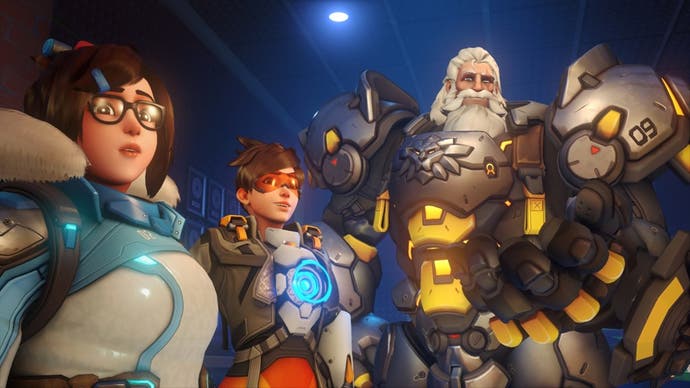
Perhaps all the talk of rivalry is a little overblown, then - as it often can be, when people talk about this industry. As sumptuous and ironic as all that historical jostling was between the three companies back in the late noughties, the reality is that now, at least between Blizzard and Riot - which probably share the most in common, in terms of games - things seem rosy. Merrill talks glowingly of Blizzard's development team ("Rob Pardo and the whole team. Chris Metzen. And [Jeff] Kaplan of course is still there and is an amazing developer"), and will only refer to Blizzard as "an incredible company". He speaks with pride about the "fireside chat" he had with Mike Morhaime, Blizzard's co-founder, just a couple of months ago, where the two waxed lyrical about shared learnings and community insights and all that. Merrill talks of developing rivalling games or services in terms of "standing on the shoulders of giants," or "rising tide that lifts all boats", and even points to Epic's work with Fortnite as "a great job from a games-as-a-service standpoint" and a "helpful reminder" for Riot to keep "continuing to evolve".
No "Riot does what Blizzdon't", sadly. But whether Riot and co. admit it or not, there is competition there. There are only so many pounds in the bank and hours in the day to dedicate to Overwatch 2 or Valorant, or League of Legends or WoW. People watch one game at a time on Twitch. They practise one game at a time to become an esports pro, and build one outfit at a time for their cosplay. As much as, of course, people juggle games and swap between them, the world of games today and surely in the near future is one of engagement. This is a time of building personalities around favoured slices of pop culture and one where Netflix, famously, cites Fortnite as a major competitor, over HBO or Hulu. Companies want your eyeballs, rather gruesomely, and they want them all to themselves.
So yes, as Merrill noted himself, the Overwatch League's tide can drive money to and lift the boat of the League of Legends Championships, through the added exposure of esports to advertisers and markets and whatever else. But what will the Overwatch League's viewership look like when Valorant launches, with Riot's esports expertise and broadcasting weight behind it? And what will happen to Counter-Strike's numbers - which only recently hit a record high - if the top streamers and players switch to playing Valorant on Riot's lovely, peeker-free servers instead? What will happen to Valorant if they don't?
That, of course, is all speculation for now. But behind all of that speculation lies an even bigger question, which is whether Riot itself is up to it. It may no longer be right to call the studio "embattled", but the vast sexual discrimination lawsuit - originally settled for $10m last year, having been opened in the wake of a devastating report on company culture - is now back in dispute again, with California state reckoning it's worth more in the region of $400million.
As much as Riot would surely like to move on from talking about it, the reality is it probably never will. Endemic sexism is the type of stink that tends to linger, even more than the odd fart on a colleague, and it's unclear just how different the culture at Riot is, 18 months on from the first report. It's part of the reason why Angela Roseboro, Riot's diversity and inclusion czar hired in the wake of the crisis and referred to as "a godsend" by some Rioters, still posts updates on LinkedIn with titles like "Out of Crisis Comes Conviction". And it's why women are still very much justified in asking if it's safe to work at Riot (according to Roseboro's own anecdotes they still very much are). Riot's COO, Scott Gelb, was namechecked multiple times in reports and remains at the company, with Roseboro on-side saying "the memes don't represent the person and leader that I have come to know" and that "from everything I have read, I can tell you that not everything reported in the media is true", while Riot sources tell the press "it's difficult to heal and move on when we are faced with the reality that at the end of the day, Riot prefers to pay the women still here for the trouble of continuing to work with alleged abusers."
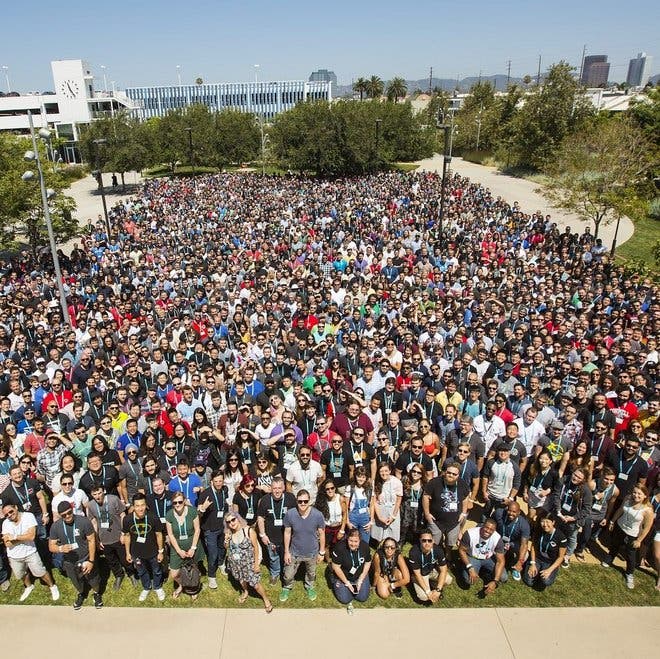
The question, beyond the culture itself, is what impact that culture might have on the games Riot makes and indeed its wider community. There's an easy hypothesis to make: while Riot's battle to overcome its apparently deep, ingrained "bro culture" played out in public, the company was making fighting games and competitive shooters and, of course, League of Legends, notorious for the toxic experience many have playing it online. Genres and games can't all be tarnished with one brush, obviously, but MOBAs, "hardcore" shooters, and fighting games can also be fairly named as genres that naturally lend themselves to greater toxicity - or at the very least greater imbalances in their audience. One 2019 study, for instance, suggests the five games in which the highest percentage of players received harassment were Dota 2, Counter-Strike: Global Offensive, Overwatch, PUBG and League of Legends. A survey from 2017 suggests female players make up just 10 per cent of the audience of MOBAs as a genre, and seven per cent of the audience of first-person shooters. Of tactical shooters, such as Valorant, that number is even lower, at four per cent. The concern, in other words, is there's a vicious circularity to it all. A company allegedly dominated by men and a troubling culture making games dominated by men, with troubling cultures. These games need more attention than many others when it comes to managing toxicity among its players, and the question - if you follow that hypothesis - becomes one of whether Riot as a company is up to that.
I've already raised concerns about Riot's plans for handling toxicity with Valorant, specifically in its reliance on the exact same communication system as League of Legends, with some added voice chat thrown in for good measure. Merrill's attitude seems to suggest that the laissez-faire approach in-game will continue. "I think it's a really interesting challenge and opportunity around: how do we do that in a way that is really healthy? And in a way that can be embraced rather than be perceived as Riot trying to, you know, create sort of this 'police state', or 'thought police' - we don't want to do that. We want to help people learn in an organic, effective way.
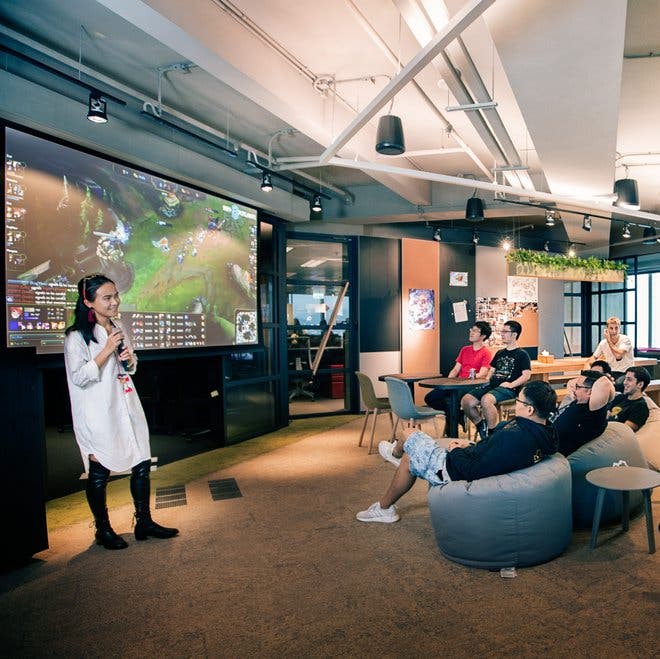
"When there's competition - of setting people against each other - some percentage of the time, there's going to be intensity. And with intensity, some people are going to handle that really well, and other people are going to handle that less well. And that then goes to [Riot's] question, which is: how do we help people learn how to behave appropriately? How do we improve human dynamics? How do we train sportsmanship? How do we reinforce a positive culture around celebrating your teammates?
"We faced lots of criticism," Merrill admits. "As an organisation, as entrepreneurs, from the game standpoint. I mean, if you wanted to come find things to criticise Riot for, there's a laundry list, right? People could talk about how we used to be X and Y [culturally speaking], or, 'oh, the monetisation is evolving in a certain way,' and, 'the community's toxic.'
"From our perspective - and obviously we're biased being very close to what we do - I think the League of Legends community is an amazing community. And a lot of the frame of reference people are looking at in terms of [the players] is skewed by the headlines they've seen around toxicity. Which is an error on our part where we were talking about, 'hey, look, we're incrementally improving something that had bad positioning,' because we're trying to say we're improving toxicity by doing XYZ. That reinforced that we're thinking something's bad and we're making it incrementally better, rather than talking about what's great. And the reality is it is great. And when you look at the behaviour that happens in online [gaming], it's just like what would happen on a basketball court.
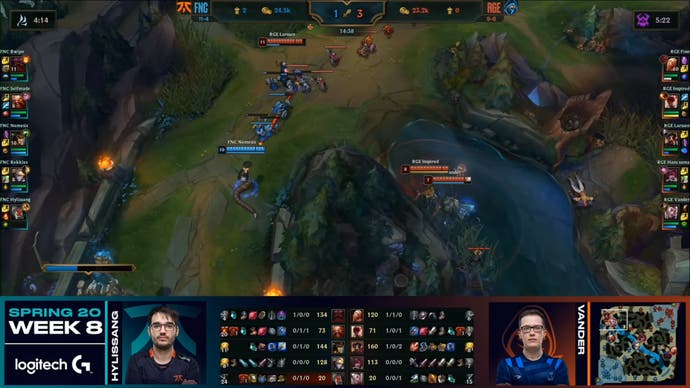
"The difference is in real life, right, you can go talk to somebody and say, 'hey!' You know, or you can shove somebody - you can walk away. In an online game, people oftentimes don't have the ability to do that, or if you leave the game you get punished, things like this. Which then from our perspective gives us a responsibility where it's not our fault that humans can be rude or mean to each other, but it's our problem. So what do we do to help cultivate a positive community?
"And whether it's things like how we're doing reform-oriented behaviour, and report cards, and how we introduced the honour system and all these things, there's a whole lens to look at what Riot's been doing across community cultivation and think that we're a global leader in how the internet is going to be managed in the future. We've helped give advice to Google and Twitter and a variety of other companies that have actually come and asked us for best practices and expertise around dealing with human behaviour in an online world.
"And so that mindset, in the approach and innovation and the focus on that, is something that is really, really important. And it's just a really hard problem to solve.
"I think there's a similar parallel with, you know, our culture and organisationally... it's incredibly transparent. Developers are incredibly empowered, everybody loves information sharing... there's a lot of great things to appreciate about how Riot operates. But we're not going to bat a thousand, especially at scale. And so then we have had some lawsuits - for the first time in the company's history, right - but with 2500 employees over 13 years. Again, I think there's lots of lenses with which to look at that."
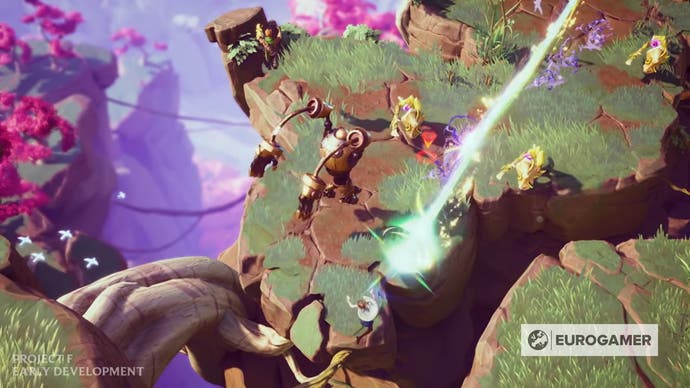
To bring it back to that question of internal culture - and its mirror in the battle with toxicity in-game - Merrill's take is this: "We want to help people learn how to thrive and succeed in these [competitive in-game] environments, because we think that helps generate life skills. I think the same thing through internally [at Riot]. I think we need psychological safety, because we're a creative company. There are 'fragile ideas' - these ideas that need vulnerabilities - and people need to feel safe so they can have the crazy ideas, and they can debate it among their friends and peers and developers and colleagues. These are just all really hard problems to solve. We're really working hard to try to build a great community, build a good company. I think there's a lot more we can do. I think there's a lot more everybody can do."
As Merrill himself put it, perhaps the rising tide will lift all boats, and the company's libertarian, reformist approach to both its own culture and that of the community will win out. Applications from women to work at Riot are actually increasing, he tells me - after an initial dip - while applications from senior women at the higher levels of the company rose significantly, which Merrill assumes is because of the way the company tackled the accusations head-on and talked about them openly. The word from employees, as of 2019, is that "real progress" has been made.
It's likely most Rioters you talk to - at least in the public eye - will say the work is never done, and the company can always improve. That's certainly the message from Roseboro's updates and indeed from Merrill himself, and there's a laundry list of positive steps you can point to Riot taking since the report - social impact funds, community work, and the positive noises employees have made - just the same as there's the laundry list of problems Merrill pointed out. But as a new world order of PC gaming approaches, with Blizzard tripping up on its own feet and Valve barrelling down the path to techie esoterica, Riot's greatest problems are still ones of its own making. The solution lies not just in Riot repeating the mantra of always improving, but in whether the company's leadership actually believes it: that the work really is never done, in both its internal culture and that of its games.
